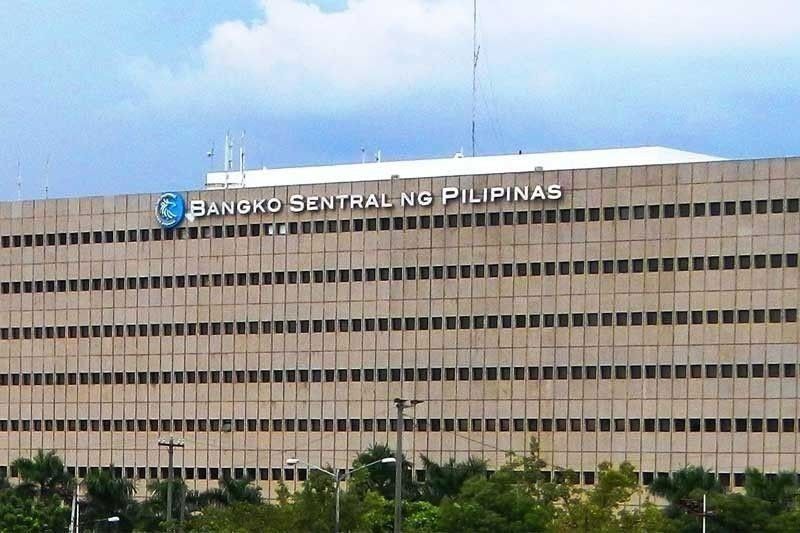BSP to banks: Comply with credit card debt moratorium

MANILA, Philippines — The Bangko Sentral ng Pilipinas (BSP) has ordered banks and credit card issuers to strictly comply with newly signed laws that grant temporary reprieve or debt moratorium to delinquent borrowers.
BSP deputy governor Chuchi Fonacier said the regulator has received a big number of credit card-related complaints.
The complaints prompted the central bank to issue Circular Letter No. 2021-008 last Jan. 14 calling for strict compliance with prevailing regulations on credit cards and financial consumer protection as well as with the provisions of Bayanihan 1 and 2.
“We are looking into complaints against credit card issuers not complying with the Bayanihan laws,” Fonacier told The STAR.
Philippine banks and credit card issuers are expecting non-performing loan (NPL) ratios and delinquency rates to pick up further with the lapse of the debt relief granted to borrowers.
Cezar Consing, president of the Bankers Association of the Philippines (BAP), said the industry expects the NPL ratio to peak at six to seven percent due to the impact of COVID-19 pandemic.
“Philippine banks expected a huge uptick in loan losses with the onset of COVID-19. In the Asian financial crisis over 20 years ago, the banking industry’s ratio of NPLs to total loans peaked in the high teens. However, this time around, we think the industry ratio will peak at six to seven percent,” Consing, president and chief executive officer of Ayala-led Bank of the Philippine Islands, said.
Latest data showed the industry’s gross NPL ratio picked up to 3.81 percent in end November last year from 3.72 percent in October. This was the highest gross NPL ratio since the 3.48 percent booked in January 2013. Data prior to 2013 were not consistent with the Department of Supervisory Analytics as the financial reporting package started in 2013.
On the other hand, the Credit Card Association of the Philippines (CCAP) expected further increase in the industry’s delinquency rate due primarily to the loss of income and unforeseen major expenses caused by prolonged lockdowns.
“The factors that will contribute to the worsening of credit card delinquency rate include the higher default rate and contraction in receivables as a result of lower card usage volume,” CCAP said.
Latest data showed credit card delinquency rate surged to 11.5 percent as of end September 2020, more than two and a half times the level booked in the end of 2019.
Harrassment
Earlier yesterday, Ang Probinsiyano party-list Rep. Ronnie Ong said some of the country’s biggest banks are defying recently signed laws that give delinquent borrowers and credit card holders some reprieve during the pandemic.
Ong said he noticed that some private financial institutions, which he didn’t identify, apparently did not extend the 30-day grace period that should have been automatic, as per Republic Acts 11469 and 11494 (Bayanihan 1 and 2), respectively.
He said he has received numerous complaints regarding banks “harassing” their clients with unpaid balances, even threatening them with “lawsuits” or “freezing their accounts” if they fail to settle them. Worse, some of these banks have threatened to “foreclose their properties,” he added.
“The real issue is not about the late payments of credit card holders but the big neglect on the part of banks to either compute the right amount due or simply show a breakdown of which portions of the loans were affected by the grace periods and where do the accrued interests and penalties come from,” Ong observed.
“What we are calling for is fairness instead of harassment. Just apply the law and provide the people accurate information on the amount of loan that is really due. They need explanations, not threats,” he said.
Under Bayanihan 1, banks are required to implement a 30-day grace period for all loans with principal and/or interest falling within the ECQ period without incurring interest on interest, penalties, fees or other charges.
The initial 30-day period was automatically extended in areas where the ECQ status was maintained.
Bayanihan 2 effectively extended the maturity date of some loans since banks were required to implement a 60-day grace period for all loans falling due last December, without incurring interest on interest, penalties, fees and other charges.
“This intimidation, this flexing of their power is wrong and insensitive,” Ong pointed out.
“We are still in the pandemic where life is hard and the issuing banks are not focusing on the issue at hand but are even going after other unrelated accounts, loans and properties of the helpless consumers, effectively shutting down their other financial means,” he added.
Other than incidents of harassment, many consumers have also experienced cancellation of their credit cards instead of mere suspension until their next full payments.
Ong proposed that banks simply give due notice within a reasonable timeframe before billing deadlines, as some clients may have simply overlooked the matter during the pandemic.
- Latest
- Trending





























